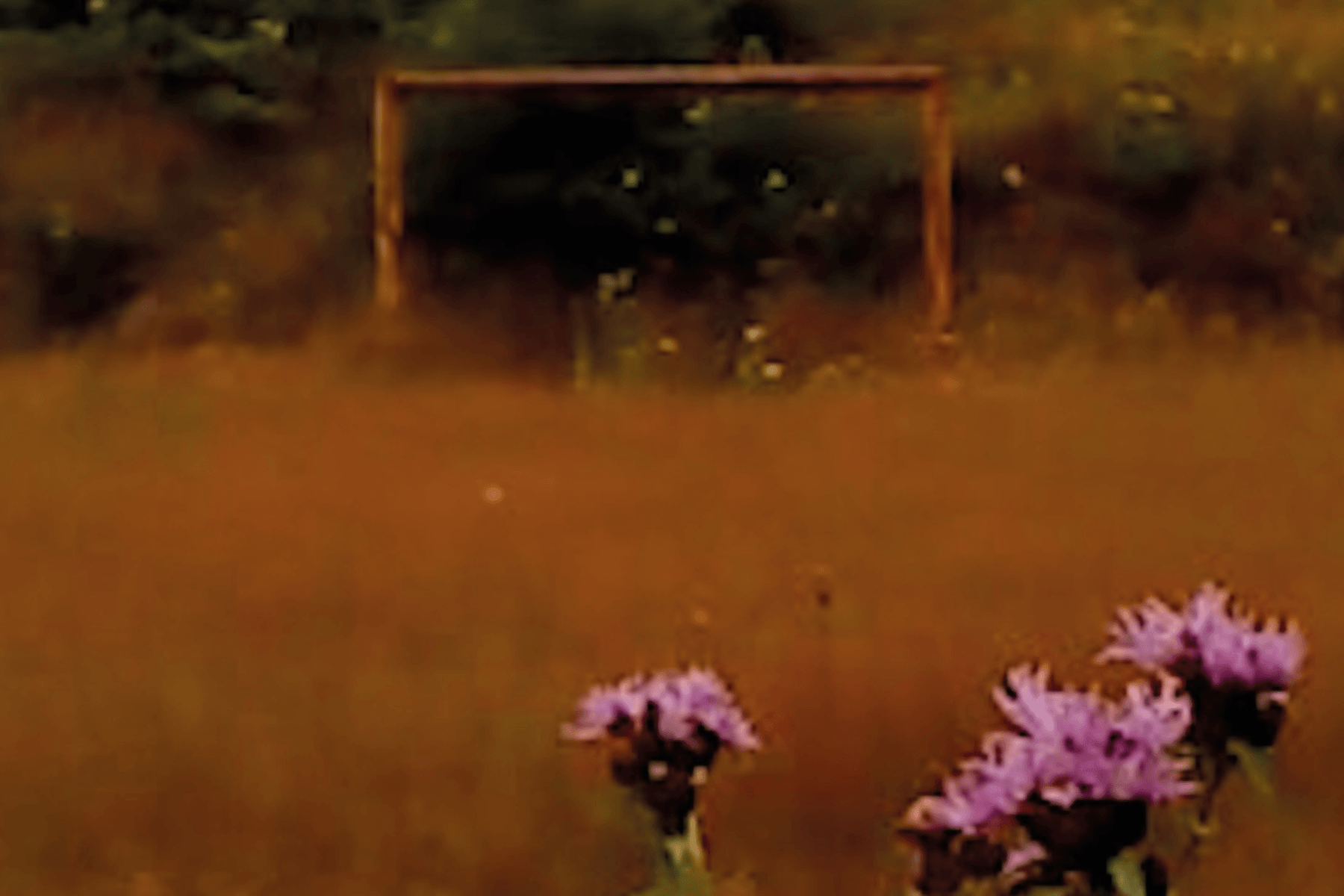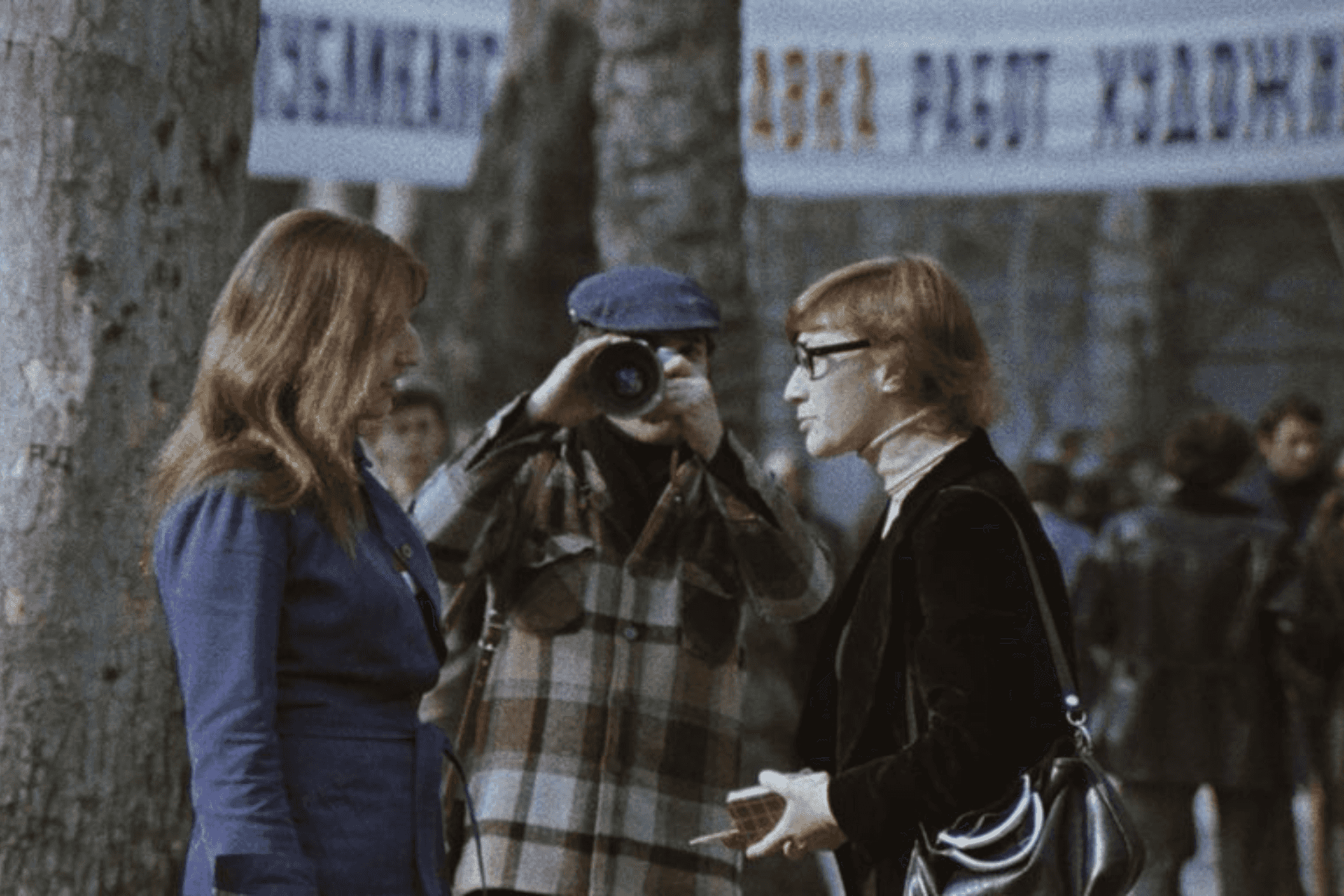
★★★★☆
Alexander Koberidze’s three-hour film tracking down football fields across rural Georgia is no ordinary road movie.
My most beloved childhood memories live on a football field in my village — long Georgian summers spent chasing a ball with neighbourhood kids, sunburnt shoulders, faded jerseys bearing the names of football heroes, some of us barefoot and all of us laughing and loudly disputing offside calls (a rule I still haven’t figured out). Beyond the pitch, emerald cornfields stretched into the horizon. Those days were carefree, a world entirely our own. Seeing rural Georgian football pitches in Alexandre Koberidze’s third feature, Dry Leaf (2025), stirred that tender, bittersweet nostalgia as intended.
Koberidze loves cinema, football, and animals, and in his films, these seemingly unrelated things coexist in a delicate, almost magical harmony. Like his acclaimed What Do We See When We Look at the Sky? (2021), Dry Leaf is quiet and intimate, but here he turns his attention to football not as spectacle but as the great equaliser.
‘Where do you play football if there is no field?’ the protagonist asks a child sitting at the edge of a village. ‘Everywhere’, the boy replies with perfect certainty. That simple truth casually revealed halfway through the journey becomes the film’s guiding spirit.
The three-hour film opens in Tbilisi: soft autumn light, cats threading through the streets, a statue of a footballer mid-kick, yellow leaves, and Giorgi Koberidze’s (the director’s brother, who also worked on his previous film) evocative score shaping the rhythm of the city. The tranquillity breaks when two police officers inform a family that their 28-year-old daughter, Lisa, cannot be considered missing because she is an adult who left a letter saying she was going to finish something important and did not want to be found. A poster for Nana Mchedlidze’s legendary football film The First Swallow (1975) hangs in the room — a subtle clue. Lisa is a sports photographer, last seen documenting rural football fields in remote villages.
Frustrated by the authorities, Lisa’s father, Irakli (played by the director’s own father, Davit Koberidze), sets off to search for her. He is joined by Lisa’s friend and colleague Levan (Otar Nijaradze) as a literally invisible companion, heard but never seen. Before leaving, Irakli pauses to find a caretaker for a stray dog named Panda he usually feeds. A bag of kibble in his car, a kind goodbye to a village donkey, asking a farmer for a calf’s name — these gestures reveal his quiet goodness more than any line of dialogue could.
As Irakli and Levan drive through pastoral Georgia, they meet villagers, some visible, some not, eager to help, yet unable to offer answers. Lisa slips further into myth with every kilometre. Their encounters unfold beside the film’s true landscape: football fields. Some abandoned, grass reclaiming the goalposts, others alive with children. Lush greens slowly shift into gold as seasons pass. Giorgi Koberidze’s score occasionally steps aside for cowbells, crickets, village chatter, and folk songs from an unexpected festival, allowing nature and community to become co-authors of the film.
In an era of hyper-sharp digital cameras, filming a 186-minute feature on an old Sony Ericsson, all grain and blur, feels like an act of cinematic rebellion. Yet Koberidze, who also serves as cinematographer, embraces the limitation with playfulness and purpose. His debut Let the Summer Never Come Again (2017) was shot the same way.
Dry Leaf is no conventional road movie. There is no tidy plot, no dramatic revelations, no transformative lessons. Instead, it is deeply earnest, slow, and poetic, focusing on small truths and Koberidze’s abiding affection for football. Even its title refers to a kick with an unpredictable landing of the ball, just like a falling dry leaf and just like Irakli, who lets everything in the film happen unpredictably. In a haphazard, ever-shifting world fractured by political crises, wars, AI-generated fakes, and big egos, Dry Leaf feels like a fresh breath — a reminder that life has a natural, unhurried rhythm. It gives us the rare gift of time: to wander, to observe, to care, and to follow a father’s journey toward his daughter.
Film details: Dry Leaf (2025), directed by Alexander Koberidze. It premiered in the main competition of the 78th Locarno Film Festival on 13 August, where it won the Special Mention prize.










